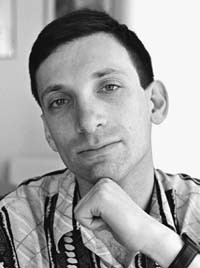Frankly, I was quite amazed to read reviews in the Ukrainian press whose bottom line is that President Kuchma’s visit to Beijing served no purpose, as China is in the process of transition to a new government and there is no one to talk to. The regime in China is not outgoing but transitional and the purpose of recent visits comes down to meeting the successor and not holding specific talks. And now Russian Pres. Volodymyr Putin has set off for Beijing. Could he have also done so out of despair? On the face of it, his visit was just a formality. Even the opinionated Russian mass media, traditionally apt to exaggerate the diplomatic successes of their president, this time concede that the key document resulting from the Russian-Chinese talks is the joint declaration in which the parties have yet again exchanged words of support on Taiwan and Chechnya. Arguably, heads of state sign similar documents backed by words and not deeds precisely at times when there is nothing to sign. Tellingly, all the remaining documents signed during Pres. Putin’s sojourn in Beijing were of a nonpresidential level. Thus, in this respect Putin’s visit to China can be compared to the latest visit by President Bush to Russia, which was a merely ceremonial event with no commitments.
But in the relationship with China ceremony carries significantly more meaning. Putin attaches great importance to establishing ties with the new Chinese leadership in the process of a power transition in the country. After all, it was the last time the Russian president met with a Chinese counterpart, who speaks Russian and has any idea of what civilization there is on the other side of the Russian-Chinese border. To the new General Secretary of the Central Committee of Chinese Communist Party, Hu Jintao, Russia is as strange as to any Western leader. Unlike Jiang Zemin, Hu Jintao will work in exclusively economic categories. While the Russian economy seems attractive and thriving only when seen from the windows of the Kremlin chambers, the Great Wall of China offers a much better view of the West and Japan: the China’s General Secretary is a successful manager and not an illegal migrant, and he has no time to think about Russia.
For this very reason the Russian-Chinese dialog will soon part with its emotional component, so important in the times of the great friendship of the epoch of Stalin and Mao Zedong and so nostalgic in the times of Boris Yeltsin and Jiang Zemin. Volodymyr Putin succeeded in reviving, albeit not for long, this component during his latest visit to the China of the Jiang epoch. But he would be better advised to picture Russian-Chinese relations without sentiment and think about China’s real political, economic, and especially demographic interests in the dialog with Moscow.







